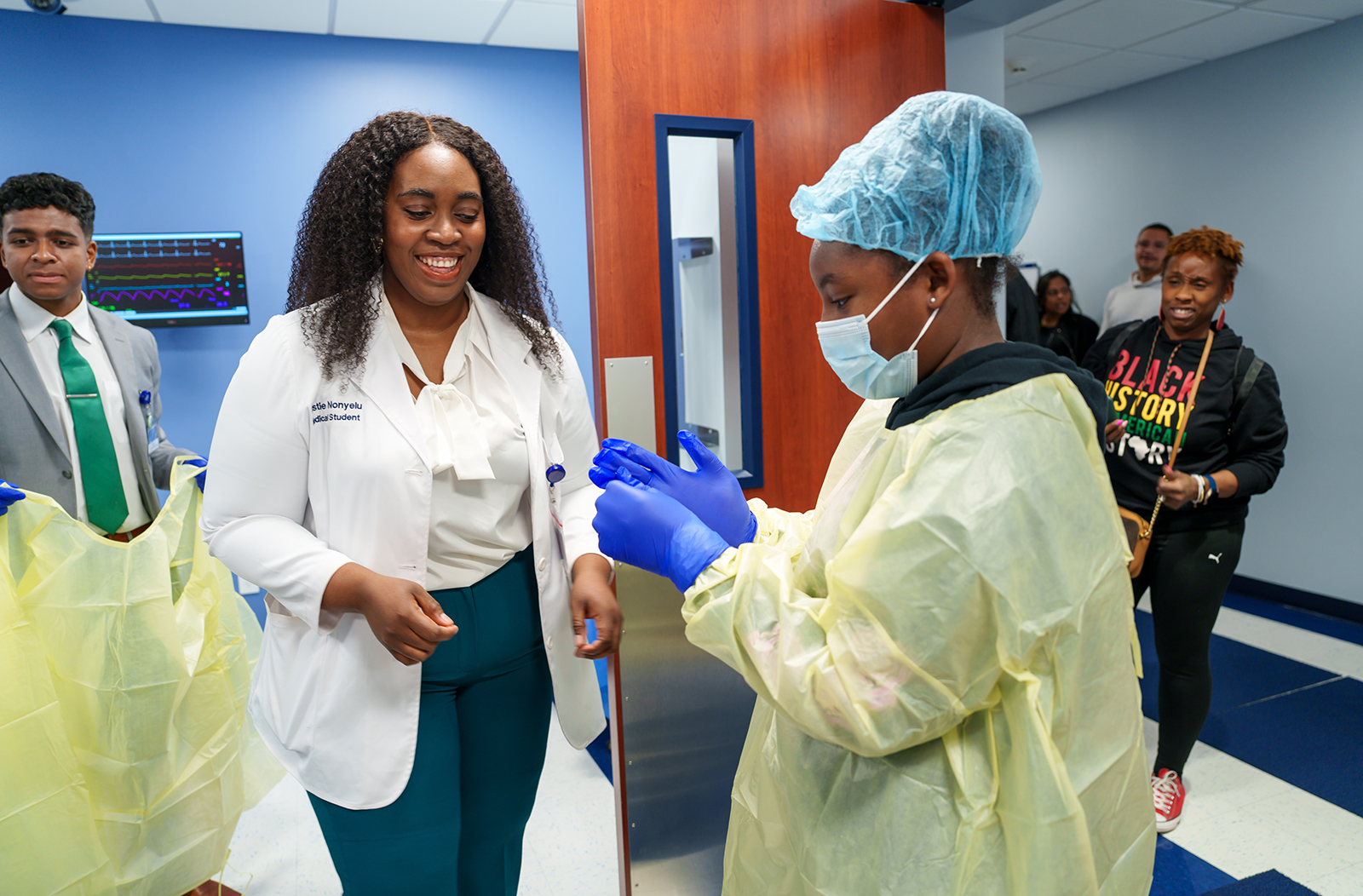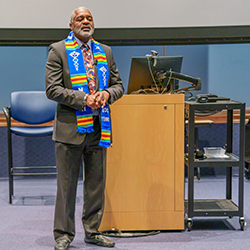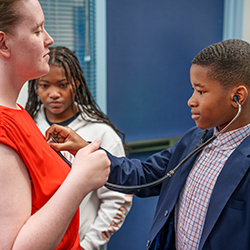
Black Men in White Coats Summit Hosted in Glendale

The Academic Medicine Consortium of Arizona (AMCA) hosted the Black Men in White Coats Summit at Midwestern University to help increase the number of Black physicians in medicine.
The event attracted elementary, middle and high school students who share an interest in science — and medicine.
According to the Association of American Medical Colleges, only 5% of physicians in the United States identified as Black or African American.

The keynote speaker was Duane M. Wooten, MD, a successful pediatrician who applied for medical school at 19 years old and became one of the youngest physicians in Arizona.
“I knew I wanted to be a pediatrician because I wanted to take care of kids,” Dr. Wooten said. “Whenever you go on a path to do something positive, you’re going to have a lot of friends who don’t want to see you do what you want to do. But I was very motivated.”
Dr. Wooten chose to attend the University of Arizona College of Medicine – Tucson for medical school. When he started medical school, he was the first African American student in eight years and only the third African American to attend there.
“I knew if I came back to Arizona as a physician, I would be a troublemaker,” Dr. Wooten said. “I would be someone that other kids could look up to and say, “Maybe I can do that.’
During his seminar, Dr. Wooten said that African American women have four and a half times the risk of death or significant morbidity after delivery than any other woman in the world.
“We have this significant problem in this country called health care disparities,” Dr. Wooten said. “African Americans do better health wise when they are taken care of by African American doctors.”
After Dr. Wooten’s remarks, parents and students broke into simulation workshops to discuss pathways to medicine and how to prepare for undergraduate and medical school.
Patrick Quarles, a second-year medical student at the college, and Franki Walsh, a first-year medical student at the college, volunteered at the patient mock exam simulation center for middle school students.
At this session, both medical students taught the children how to check for a patient’s reflexes and how to use a stethoscope.
Quarles said he felt inspired to volunteer and give back to his community with the goal of inspiring the next generation of doctors.
“Being a Black medical student, I didn’t get to see a lot of Black doctors growing up,” Quarles said. “Allowing these kids to have that experience is beneficial for me and my growth in what I plan to do as a doctor.”
For Walsh, she said she believes it is important to support the journeys of any children interested in medicine.

The event concluded with a series of panels: the Black Men in White Coats Panel, the Black Women in White Coats Panel and the Indigenous, LSH+ and People of Color in White Coats Panel.
The Black Men in White Coats initiative was started by Dale Okorodudu, MD, in Houston, Texas, with the goal of increasing the number of Black men in medicine.
About the College
Founded in 2007, the University of Arizona College of Medicine – Phoenix inspires and trains exemplary physicians, scientists and leaders to advance its core missions in education, research, clinical care and service to communities across Arizona. The college’s strength lies in our collaborations and partnerships with clinical affiliates, community organizations and industry sponsors. With our primary affiliate, Banner Health, we are recognized as the premier academic medical center in Phoenix. As an anchor institution of the Phoenix Bioscience Core, the college is home to signature research programs in neurosciences, cardiopulmonary diseases, immunology, informatics and metabolism. These focus areas uniquely position us to drive biomedical research and bolster economic development in the region.
As an urban institution with strong roots in rural and tribal health, the college has graduated more than 1,000 physicians and matriculates 130 students each year. Greater than 60% of matriculating students are from Arizona and many continue training at our GME sponsored residency programs, ultimately pursuing local academic and community-based opportunities. While our traditional four-year program continues to thrive, we will launch our recently approved accelerated three-year medical student curriculum with exclusive focus on primary care. This program is designed to further enhance workforce retention needs across Arizona.
The college has embarked on our strategic plan for 2025 to 2030. Learn more.